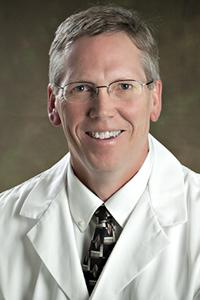New technology, individualized care impacts patient experience at Troy
Outpatient experience scores have been consistently strong for the radiation oncology department at Corewell Health Beaumont Troy Hospital.

“We are proud of our scores,” said Gregory Gustafson, M.D., the hospital's radiation oncology clinical director. “They are as good as they are because of the individual people who have dedicated themselves to patient care, regardless of what other distractions we have, and that comes from the receptionist to the nursing staff, the radiation therapy staff to the physics staff. We try to make a patient’s experience as smooth as possible when they are going through a very stressful time. We really work as a team with that as our guide.”
The department is also acutely attuned to the feedback it receives from every patient who walks through the door. Elizabeth Rutka, Corewell Health East's radiation oncology patient experience coordinator, studies every survey and comment submitted with a fine-toothed comb.
“The patient experience is always a top priority. We strive to provide the best care for our patients, and the surveys contain invaluable insight,” Elizabeth said. “This allows for opportunities in process improvement, which are reviewed with our team, often including our patient family advisors, leading to meaningful changes in the strive for continued excellence.”
When analyzing the scores, Elizabeth sees consistent patterns in the patient feedback.
“Troy’s personnel are so incredible, and it obviously shows,” she said. “They take the time, they are accessible, the patient is involved in their own care, and they feel they are a priority.”
In addition, new technology can positively impact the entire patient's experience.
Troy's radiation oncology department recently acquired a new linear accelerator within the hospital.
“The linear accelerator gives us the ability to perform a wide range of radiation treatments,” Dr. Gustafson said. “These allow us to coordinate and deliver therapy for different types of cancer including brain, lung, prostate cancer, and GYN cancers, which are often treated within the hospital.”
Coordination with procedures such as brachytherapy can be easily coordinated within the hospital department, as well.
“The linear accelerators allow us to perform very localized therapy to target specific tumors and spare normal tissue, to reduce side effects and complications of therapy,” Dr. Gustafson explained. “Having the linear accelerator in the hospital makes it much easier for us to coordinate inpatient treatment, patients do not have to be transferred elsewhere, they can get treatment immediately, and it allows for an overall easy process. There are so many different things we can do with the new linear accelerator which we could not perform before. Having the technology within the hospital at Troy has been a big help to us, as well.”
Patient experience scores are reflective of not only the team members providing care, but the ease, convenience, accessibility to treatment, and understanding that goes along with it.
“It’s about the human experience of what new technology can bring to a patient and what they are going through during their treatment and recovery,” Dr. Gustafson said.
Administrative support is also key to successful patient experience. That support comes from leadership like Michael Khoury, M.D., vice president of medical affairs, and Iyanna Brown, director of radiation oncology.
“We have been supported nicely by the Troy administration to give us what we need so that we can give the patients that experience.” Dr. Gustafson said.